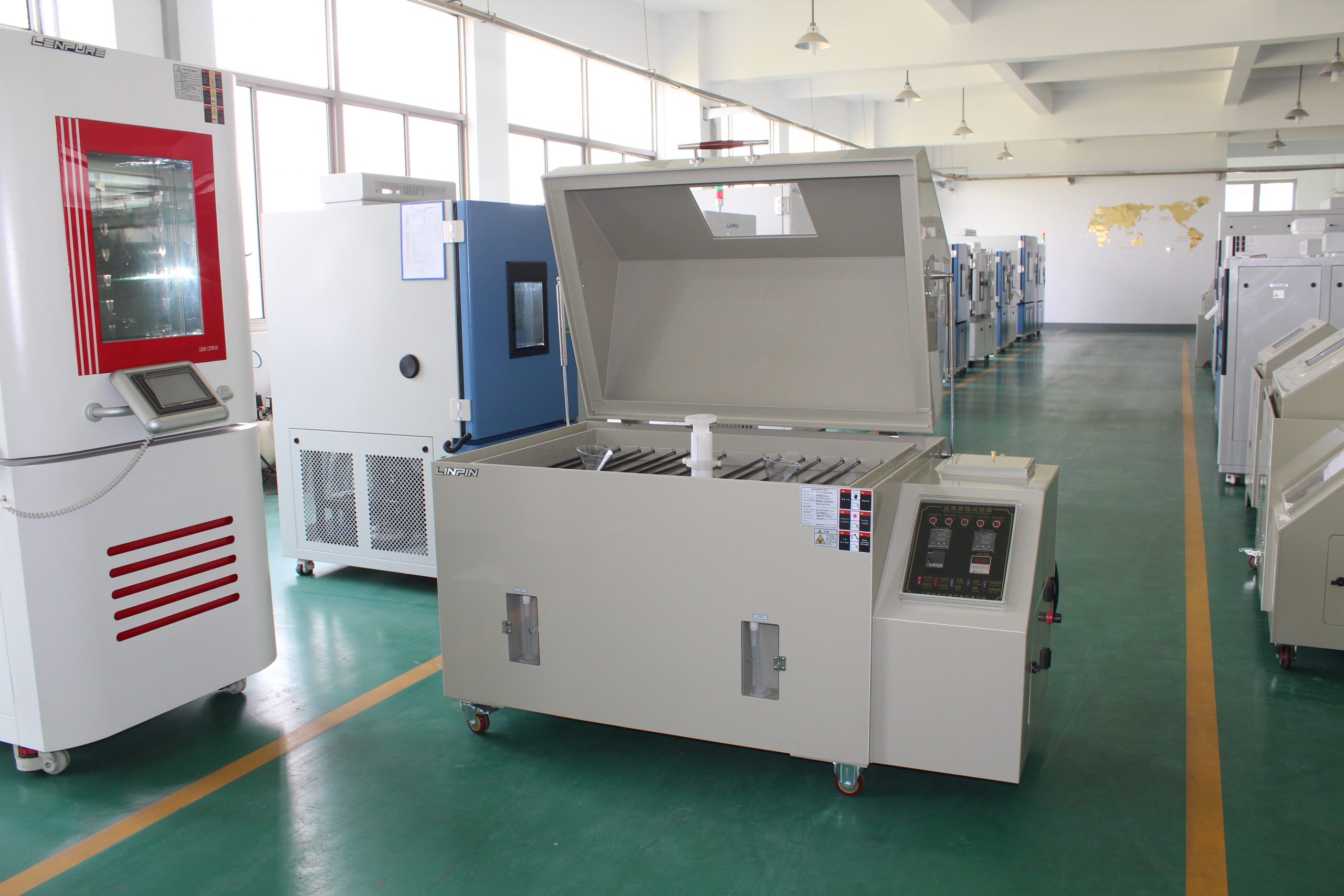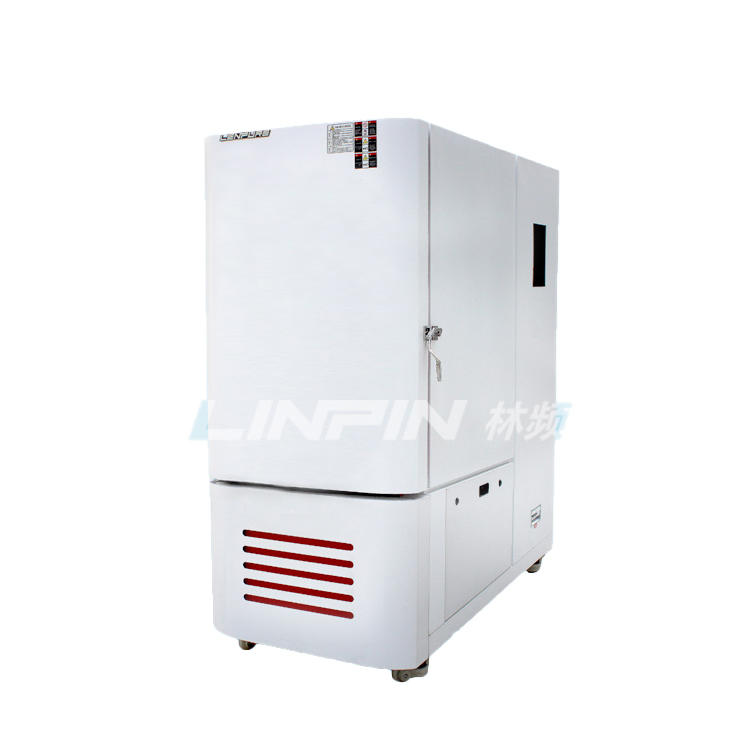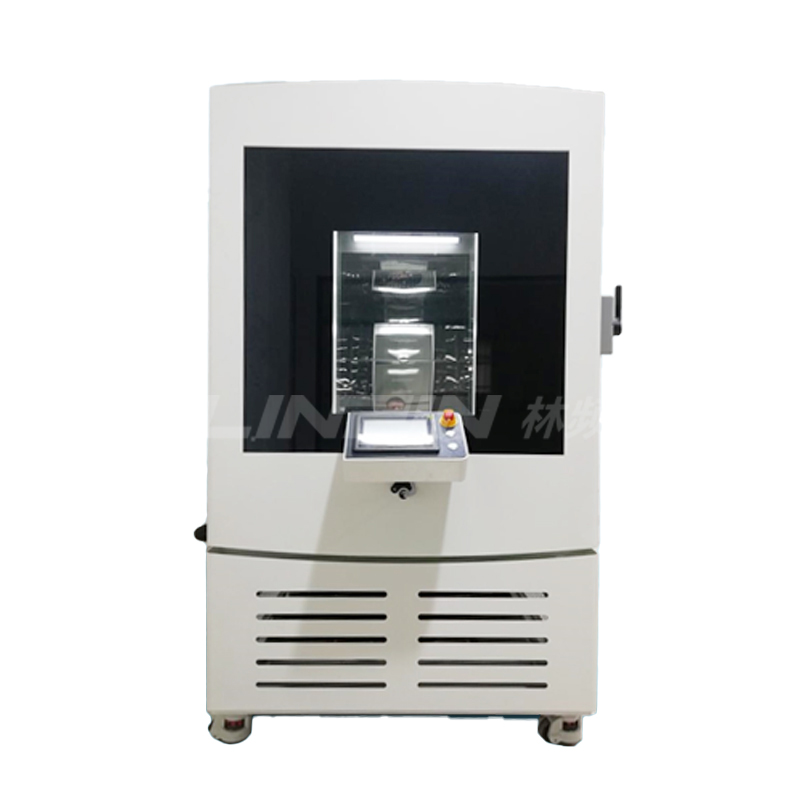Differences Between NSS, AASS, and CASS Salt Spray Tests – Which One Should You Choose?
Author:LINPIN Update Time:2025-09-22 Source:LINPINSalt spray testing is a critical method in the field of material corrosion resistance evaluation, playing a key role in assessing product durability and quality. Common test methods used in salt spray test chambers include NSS, AASS, and CASS, each with distinct applications and characteristics. Choosing the right test method can not only improve testing efficiency but also ensure authoritative and reliable results. Today, we will delve into the differences between these three test methods and guide you on how to select the most suitable one based on your specific needs.
1. Key Differences Between the Three Salt Spray Tests
1.1 NSS Test (Neutral Salt Spray Test)
The NSS test is the most fundamental and widely used salt spray testing method. It uses a 5% sodium chloride solution with a neutral pH (6.5–7.2) and is typically conducted at a temperature of 35°C. The NSS test simulates general atmospheric corrosion environments and is suitable for evaluating the corrosion resistance of common metal materials, such as steel and zinc alloys. Although the test cycle is relatively long, it is cost-effective and ideal for routine quality inspections.
1.2 AASS Test (Acetic Acid Salt Spray Test)
The AASS test is an enhanced version of the NSS test. By adding glacial acetic acid to the salt solution, the pH is reduced to an acidic range of 3.1–3.3. This acidic environment significantly accelerates the corrosion process, shortening the test duration. The AASS test is commonly used to evaluate the corrosion resistance of aluminum alloys, lightweight metal coatings, and organic coatings. It is particularly suitable for simulating industrial pollution or acid rain conditions.
1.3 CASS Test (Copper-Accelerated Salt Spray Test)
The CASS test is the most aggressive among the three methods. It builds upon the AASS test by adding copper chloride, maintaining a pH of 3.0–3.1, and utilizing copper ions to catalyze and drastically increase the corrosion rate. The CASS test is primarily used for rapid evaluation of high-end products, such as automotive parts, electronic platings, and military equipment. It is highly effective in exposing material defects in a short time and is ideal for applications with extremely high corrosion resistance requirements.

2. How to Choose the Right Test Method?
Selecting the appropriate salt spray test method depends on your testing objectives, material properties, and industry standards:
-
Cost-Effectiveness and General Use: If your products are intended for general environments (e.g., everyday hardware, structural components), the NSS test is the best choice. It is simple to operate, cost-efficient, and complies with various international standards (e.g., ASTM B117, ISO 9227).
-
Rapid Assessment for Acidic Environments: For products such as electronic enclosures, outdoor decorative materials, and industrial equipment that may be exposed to acid rain or chemical pollution, the AASS test can provide faster results, helping you efficiently verify material resistance to acid corrosion.
-
High-Standard and Demanding Applications: Products in industries such as automotive, aerospace, military, and high-end electronics often require the CASS test to ensure reliability in extreme environments. Although it comes at a higher cost, its accelerated performance and precision are unmatched.
3. Professional Salt Spray Test Chambers: Ensuring Reliable Testing
Regardless of the test method chosen, a high-performance salt spray test chamber is essential for success. A quality test chamber should feature precise temperature control, uniform spray distribution, corrosion-resistant materials, and compliance with international standards. Our series of salt spray test chambers strictly adhere to ASTM, ISO, and other specifications, offering seamless switching between NSS, AASS, and CASS modes to meet diverse industry needs. Additionally, we provide customized solutions to help enhance your product quality and competitiveness.
Salt spray testing is a vital step in quality control. Choosing the right method—NSS, AASS, or CASS—ensures efficient and reliable test results.





